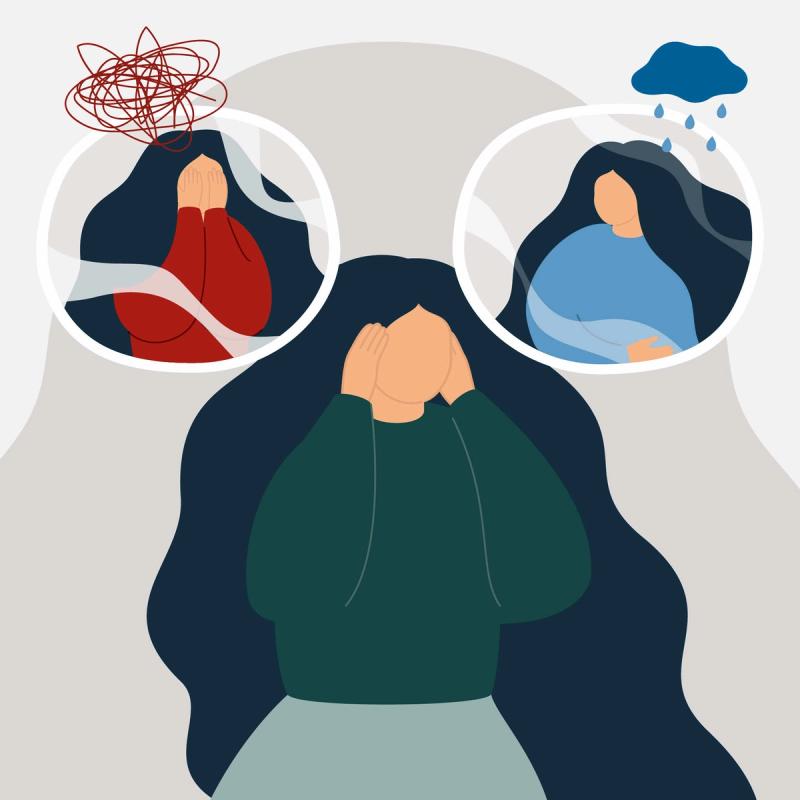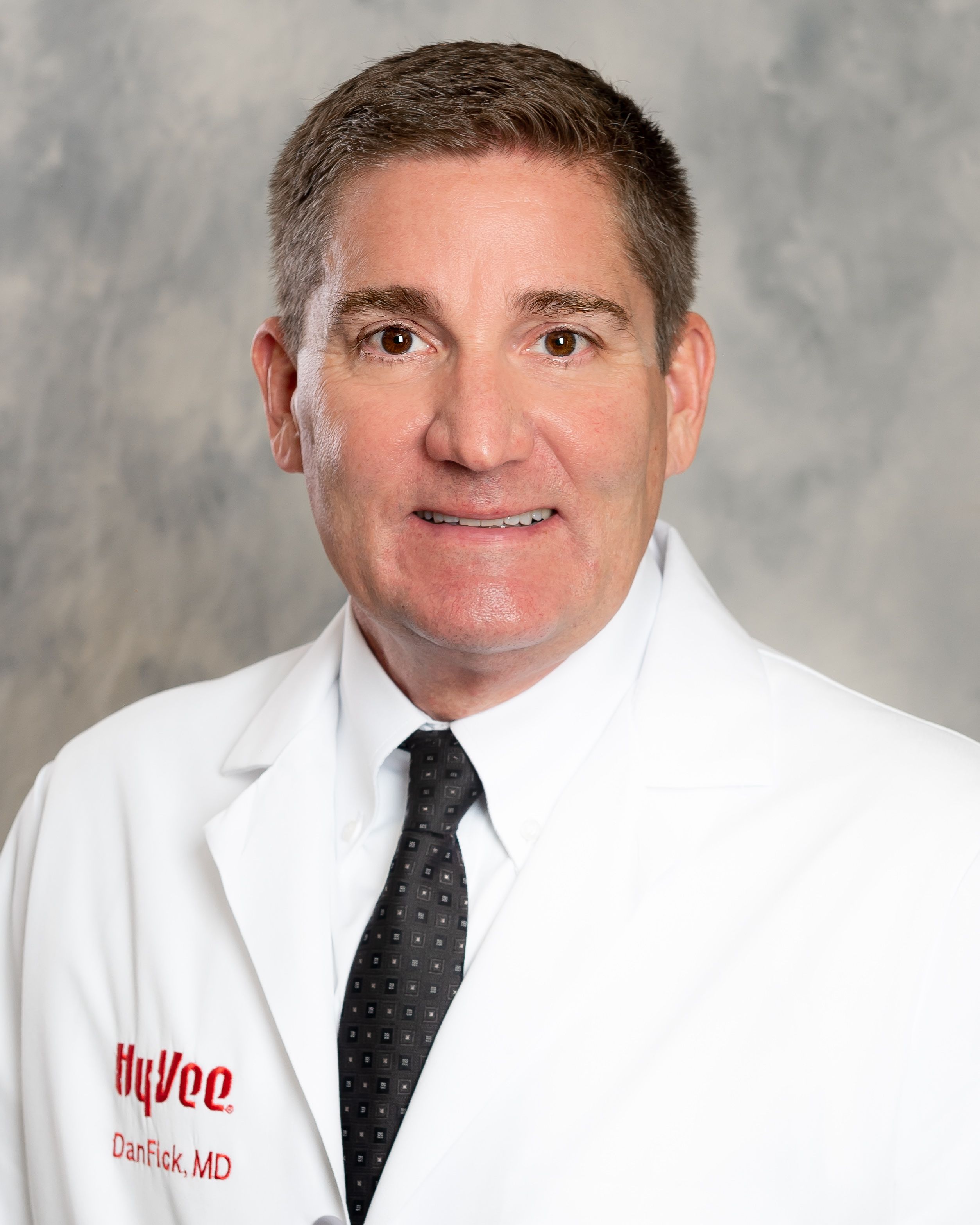Just because a person outwardly seems successful, productive and happy doesn’t mean they do not have internal struggles. High-functioning anxiety and depression can cause severe pain and issues for the affected. Because the symptoms are not as noticeable to outsiders, high-functioning depression and anxiety can be underdiagnosed or missed. You may not even realize you have anxiety or depression because you can push through it on a daily basis.1
Read on to learn about the complexities of these conditions, and explore their symptoms, causes and risk factors. Discover various treatment options, and find guidance on how to support someone dealing with these challenges. If you or someone you know grapples with these hidden battles, understanding and assistance are just a click away.
If you or someone you know are experiencing suicidal or self-harm thoughts, please reach out immediately to a health care provider, call the National Suicide Prevention Lifeline at 1-800-273-8255 or call the Suicide and Crisis line at 988.
Key Takeaways
High-functioning anxiety and depression can be hard to spot. People may appear fine on the outside while struggling internally with fear, self-doubt or emotional exhaustion.
Treatment options include prescription medications, therapy or a combination of both. These approaches help manage symptoms even when they’re not always visible.
Daily structure, mindfulness, movement and lifestyle changes can support long-term mental health alongside clinical treatment.
If high-functioning symptoms are starting to interfere with sleep, focus or relationships, it may be time to consider care and talk to a provider.
What is High-Functioning Anxiety?
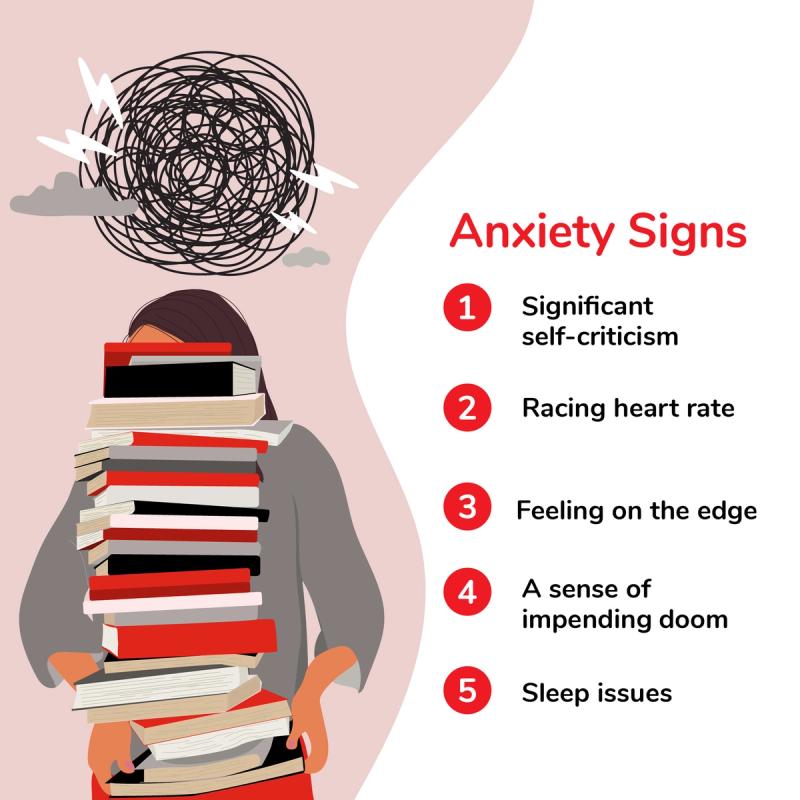
High-functioning anxiety is a subset of generalized anxiety disorder that can often go undiagnosed because of the behavior of the person. It is not recognized as an official diagnosis in the Diagnostic and Statistical Manual of Mental Disorders, but it is a commonly used term to describe certain individuals with anxiety disorders.
The main differentiating factor of those who have high-functioning anxiety is that these individuals experience anxiety symptoms while still being able to maintain a high level of functionality in their lives. For example, individuals with high-functioning anxiety are often successful in their careers, have healthy relationships and more while internally struggling with symptoms of anxiety.
Because these individuals are observed, both by others and themselves, as functional in their lives — their generalized anxiety disorder can often go undiagnosed.2
High-Functioning Anxiety Signs and Symptoms
Individuals with high-functioning anxiety experience many of the same symptoms of generalized anxiety disorder. Symptoms can be internal or physical.
Internal and mental symptoms of high-functioning anxiety include:3
Significant self-criticism or fear of criticism.
Worry about looking inadequate or foolish to others.
Feeling on the edge or on the verge of losing control.
A sense of impending doom.
Significant stress.
Physical symptoms of high-functioning anxiety include:4
Excessive sweating.
Lightheadedness or dizziness.
Headaches.
Intestinal discomfort.
Muscle tension.
Racing heart rate.
Rubbery or jelly legs.
Sleep issues.
Tingling or numbness in toes or fingers.
High-Functioning Anxiety Causes and Risk Factors
It is difficult to identify the cause of high-functioning anxiety, but there are some contributing factors. Potential causes include:5
Family history of anxiety disorders.
Negative or stressful life events.
Medical conditions like thyroid issues.
There are also certain factors that can put someone at higher risk for high-functioning anxiety, including:6
Experiencing significant stress or trauma.
Gender (women are twice as likely to be diagnosed with an anxiety disorder).
Insecurity growing up.
What is High-Functioning Depression?
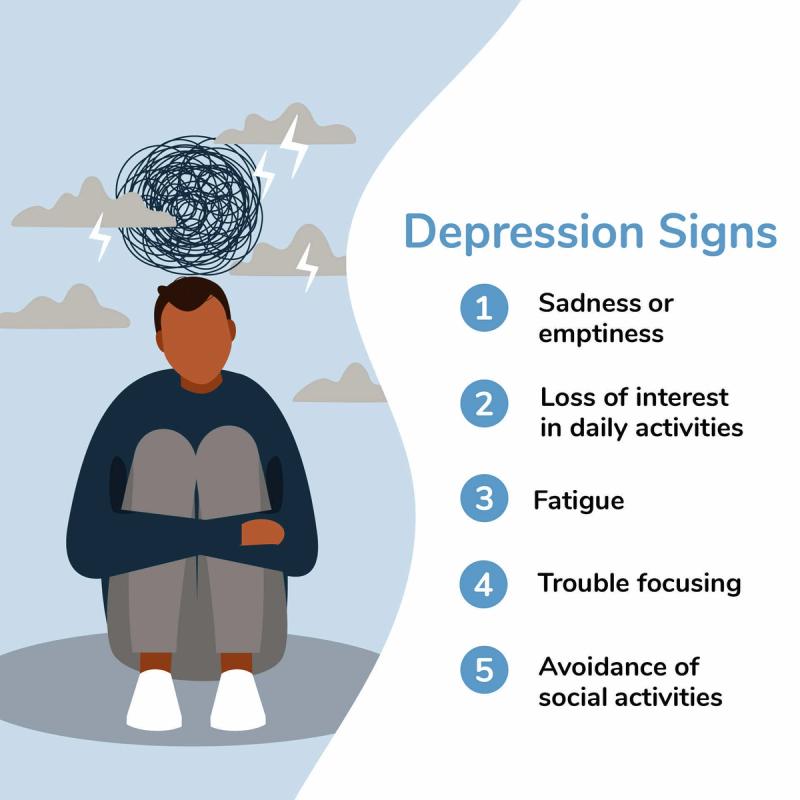
Like high-functioning anxiety, high-functioning depression is not an official diagnosis in the Diagnostic and Statistical Manual of Mental Disorders.7 More medically correct names are dysthymia or persistent depressive disorder.8 High-functioning is a descriptive term for individuals with depression who are outwardly functional enough in their lives that others would not necessarily be able to tell they are depressed.9
High-Functioning Depression Signs and Symptoms
High-functioning depression or persistent depressive disorder include:10
Sadness or emptiness.
Loss of interest in daily activities.
Fatigue.
Low self-esteem or self-criticism.
Trouble focusing and making decisions.
Irritability.
Avoidance of social activities.
Feelings of guilt and worry.
Poor appetite or overeating.
Sleep problems.
Hopelessness.
High-Functioning Depression Causes and Risk Factors
While high-functioning depression does not have a proven cause, some contributing factors could trigger the condition. Potential causes include:11
Biological brain differences.
Brain chemistry.
Inherited traits or family history of depression.
Traumatic life events.
Persistent depressive disorder often starts early in childhood or young adulthood. Risk factors for high-functioning depression include:12
Having a first-degree blood relative, such as a parent or sibling, with a depressive disorder.
Traumatic or stressful life events.
Personality traits (low self-esteem, pessimism, etc.).
History of other mental health disorders.
Treatment Options for High-Functioning Anxiety and Depression
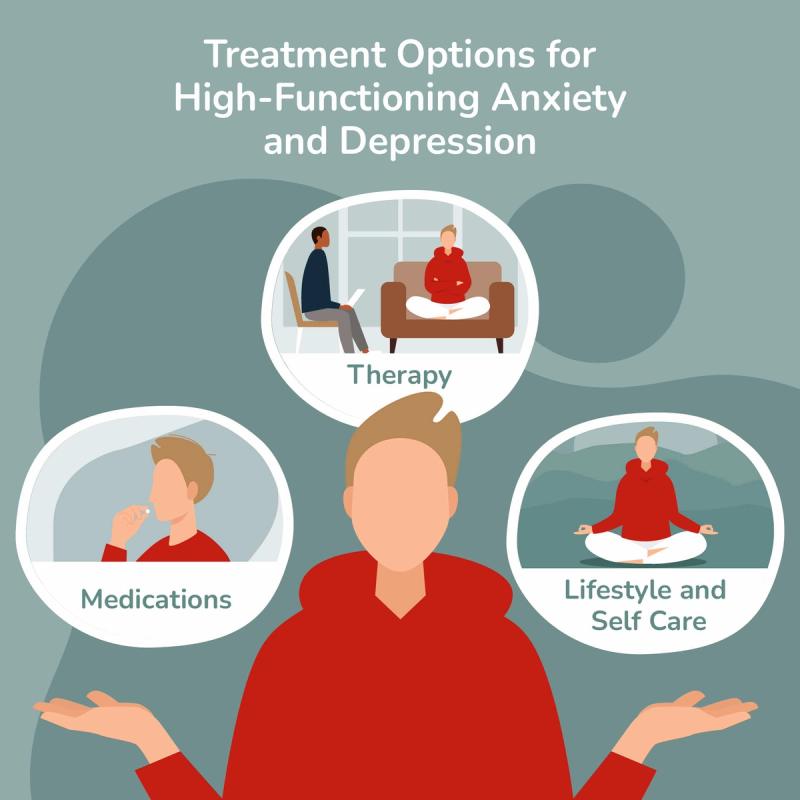
There are options when it comes to treatment for high-functioning anxiety and depression. You may find one works better or a combination of several treatments is best.
Medications
Antidepressants and anti-anxiety medications are a common way to treat high-functioning anxiety and depression. Always talk to your provider before starting a medication.
Popular anti-anxiety and antidepressant medications include:13
Therapy
Talk therapy, or psychotherapy, is talking through your depression, anxiety, life events, feelings and more with a licensed therapist. It can be a great treatment option alone or in combination with other treatments and medications.
Many people find talk therapy helps:14
Adjust to a crisis or difficulty.
Identify issues that contribute to your depression or anxiety.
Identify negative beliefs and behaviors.
Change behaviors and beliefs to a healthy place.
Find better ways to cope with and solve problems.
Explore relationships and experiences.
Regain a sense of control in your life.
Ease depression or anxiety symptoms.
Learn to set realistic goals for your life.
Lifestyle and Self Care
Mental health disorders like anxiety and depression can be managed with healthy lifestyle habits. According to the experts, the following activities can be useful in managing symptoms:15
Exercise regularly.
Eat healthy, regular meals.
Stay hydrated.
Make sleep a priority.
Try a relaxing activity (meditation, journaling, etc.).
Set goals and priorities.
Practice gratitude.
Focus on positivity.
Stay connected with friends and family.
How to Support Someone with High-Functioning Anxiety or Depression
If someone you care about is struggling with high-functioning anxiety or depression, there are some ways you can show your support. You can try some of the following:16
Listen without judgement or trying to fix anything.
Be specific in how you are available to help. For example, instead of saying “Reach out if you need anything,” you could say “I will take you to your next doctor’s appointment.”
Validate their feelings.
Don’t take their moods personally.
Invite them to do fun things.
Speak up if you think they are in danger of self-harm.
How RedBox Rx Can Help
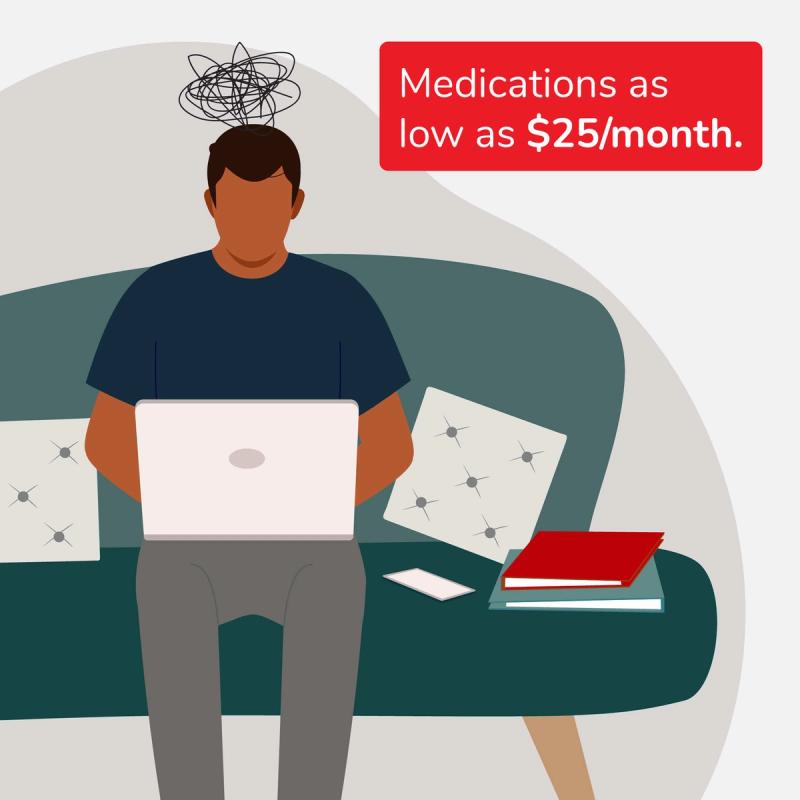
RedBox Rx makes receiving anxiety and depression treatment easy and affordable. We offer secure, private online consultations with licensed providers focused on your health.
Benefits of RedBox Rx include:
Transparent, affordable, flat rates. Medications for $25 per month (with purchase of three-month supply).
$35 consultations with a U.S. licensed medical professional.
No insurance required. No membership fees. FSA and HSA eligible.
No office wait times or scheduling issues typical with physical medical practices.
FREE shipping directly to you. Monthly and quarterly subscriptions available.
Get started on your mental health treatment journey with our online assessment.
If you are experiencing suicidal or self-harm thoughts, please reach out immediately to a health care provider, call the National Suicide Prevention Lifeline at 1-800-273-8255 or call the Suicide and Crisis line at 988.

